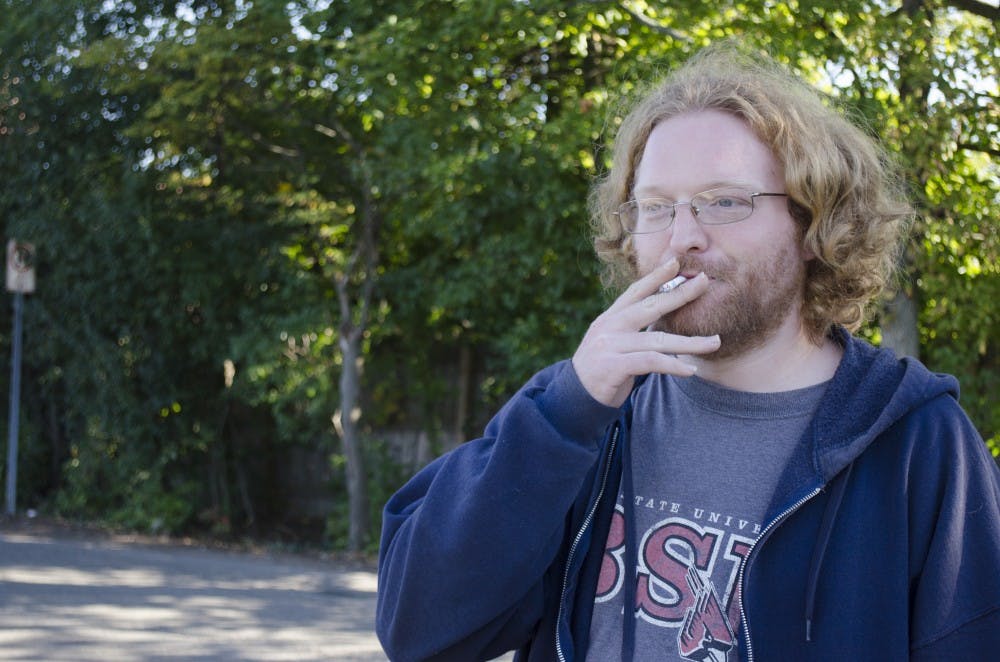17 citations
were issued in the Fall Semester
5 citations
were issued in the Spring Semester
22 citations
were issued for the first academic year
SOURCE: Gene Burton, director of public safety and University Police Department chief of police
Ball State wrote 22 citations for the first academic year of its on-campus smoking ban.
Gene Burton, director of public safety and University Police Department chief of police, said the low numbers show the success of the new policy.
“We’ve gotten compliance without a lot of enforcement,” Burton said. “The goal was to do this without writing a lot of tickets.”
The Fall Semester had 17 citations and the Spring Semester had five. Each citation is $100 — a ticket students have to pay to avoid a Bursar hold on their account, which prevents them from registering for classes or receiving their degree.
The fees from collected citations work to pay for educational and promotional materials of the university’s policy.
Abe Underhill, a Dining employee who smokes, said he still has mixed feelings over the policy.
“It’s not a big deal for me because I can just walk from the Student Center to an off-campus spot and smoke,” Underhill said. “For Noyer, they spend their entire break walking to a place they can smoke. I just think the university didn’t take this into consideration.”
This policy generated complaints not only from smokers, but also residents in the fall on or near Petty Road, west of campus. People were cutting through yards and standing in the street off campus to smoke.
During the winter, Burton said he did not receive many complaints.
“There weren’t much,” he said. “Just a few people calling in here or there. What I’ve heard has been mostly anecdotal.”
The Daily News reported that in the winter, some students were violating the ban intentionally because of extreme cold. This resulted in a citation for one student.
However, the number of warnings given during this time are unknown.
There is no way of tracking warnings given to violators of the policy, said Brenda Smith, secretary to the vice president for Student Affairs.
Warnings are generally given when the officer tells the person “to stop or do it somewhere else.”
Kay Bales, vice president for Student Affairs, said in a statement that the warnings are the university’s approach to remind people on campus of the policy.
Underhill said he has broken this rule a few times and that the new policy isn’t effective.
“All the times I’ve been stopped by a cop, he tells me to stop and gives me a warning,” he said. “In all honesty, I should have been given a ticket. The university isn’t making any money off of it, and it’s not being enforced.”




